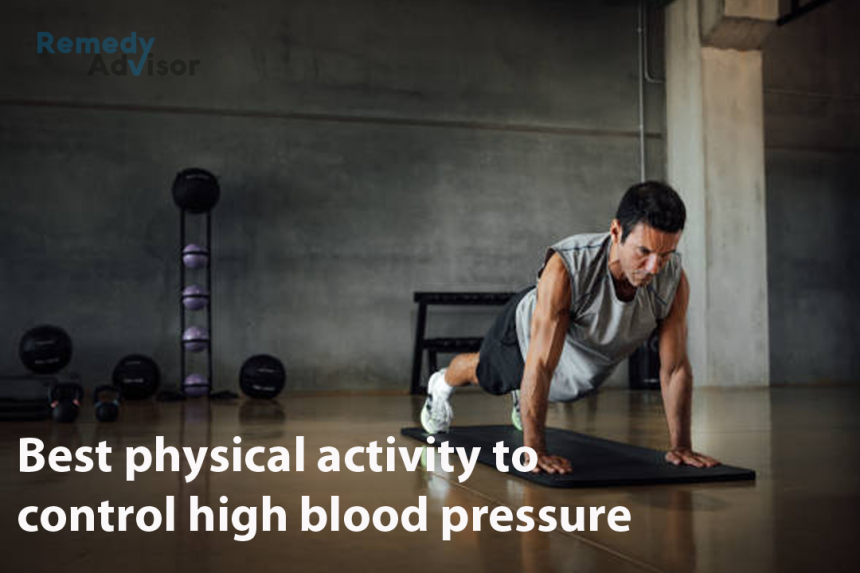Let’s cut to the chase and tell you how exercise can reduce your blood pressure. Although there’s a lot happening on a biochemical level, the gist of it is, your heart is a muscle and regular exercise makes your heart stronger. A strong heart is capable of accomplishing more (pumping blood throughout the body) by doing less. When the heart doesn’t have to work as hard, there is less pressure or force against the artery walls and blood pressure is lowered. How much can exercise improve your blood pressure?
- Regular physical activity can lower your blood pressure about as much as some antihypertensive medications can: an average of 4 to 9mmHg systolic. That means if your doctor wants to prescribe a drug to bring your blood pressure down this amount, exercise may be the only prescription you need. At the very least, staying physically active can reduce the amount of medication you may need to take.
- Your blood pressure can improve with physical activity, but give it a little time. It takes about thirty to ninety days for the blood-pressure lowering benefits of exercise to kick in.
- After thirty to ninety days, don’t quit! If you want to continue enjoying the blood-pressure lowering benefit of physical exercise, you need to keep going. Exercise is like an umbrella in the rain: it only protects you if you keep it up!
- Physical exercise can prevent the progression of blood vessel (vascular) changes that occur with hypertension, cardiovascular disease, diabetes, and obesity, such as endothelial dysfunction and stiff arteries. In fact, exercise improves the availability of nitric oxide, which is essential for opening up blood vessels so blood can flow more smoothly.
- If your blood pressure is already in a healthy range, less than 120/80mmHg, regular exercise can help maintain that level as you get older and help prevent hypertension.
Doesn’t Exercise Raise Blood Pressure?
The answer to this question is “yes”: physical activity does cause blood pressure to rise. So why on earth do experts recommend exercise for people who have high blood pressure? Isn’t it dangerous? Well, you’re not going to use this argument as an excuse not to exercise! Although it is true that exercise will cause your blood pressure to raise for a short time, once you stop the activity your blood pressure should return to its normal level. The faster your blood pressure returns to its resting rate (resting heart rate, or RHR, which I discuss later in this chapter), the more physically fit you probably are.
In fact, most people who have hypertension are able to increase their physical activity levels without any cause for alarm. According to the Blood Pressure Association, it is safe for people who have a blood pressure of 90/60 mmHg to 140/90 mmHg to increase their activity level. For those with a blood pressure of 140/90 mmHg to 179/99 mm Hg, it should be safe to begin increasing exercise levels. Anyone with a blood pressure reading greater than 179/99 mmHg should definitely talk to his or her doctor before exercising. As a general rule, however, it is always best to first consult your doctor before starting an exercise program, trying new types of exercises, or participating in sports, regardless of your blood pressure levels.
“I Can’t Exercise Because” Antidotes
Okay, so your blood pressure is moderately high and I just eliminated one excuse you might want to use to avoid exercise. Here are a few more “I can’t exercise because” reasons and antidotes for each one.
I don’t have enough time
Sure you do, and the antidotes to this excuse are twofold. One is time management and the other is perspective. If you schedule in physical activity as part of your day and you view it as a positive experience, you may be surprised how the time issue disappears. For example: I have already discussed the fact that you can break up your activity into smaller segments, so incorporate your exercise into convenient ten- to twenty-minute slots throughout the day. These opportunities may include walking to the train or bus stop, a brisk walk during lunch, raking leaves while dinner is cooking, spinning or using a treadmill while watching television, using hand weights while on the phone, or parking a few blocks away from an errand. On days when you have bigger slots of time, choose to do something with a friend, go to an aerobics or yoga class, or go dancing.
I’m too tired
Yes, the first step is the most difficult one to take, but you know deep down that once you get moving you will feel more energized. Do you need some incentive? Plug in your iPod while you walk or jog or crank up the stereo while you do aerobics or yoga to a DVD at home.
I don’t want to exercise alone
Lots of people feel the same way, so all you need to do is find one of them! Seriously, hook up with your partner, kids, other family member, neighbor, friend, and/or coworker and be active together. Kids have play dates, so why don’t you? Engaging in physical activities with others also is a good way to motivate yourself and your exercise partner not only to keep moving but perhaps to also even try new things, such as a zumba class, roller skating, or ballroom dancing.
Exercise is boring
The reason exercise may be boring is because you haven’t introduced a way to spice it up. What would make your activities more exciting? Do them with friends? Add music? Try something completely new? It’s up to you to add some spice to your sessions.







